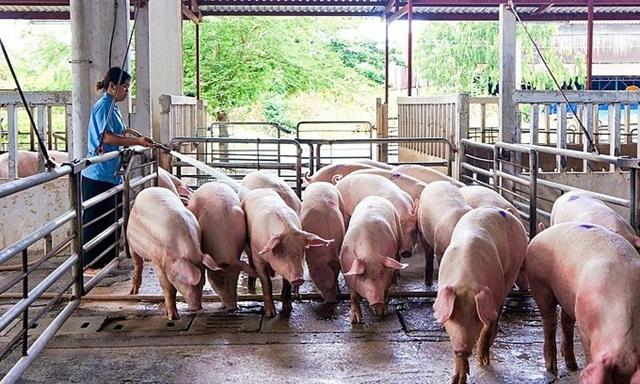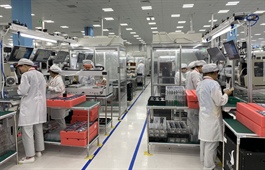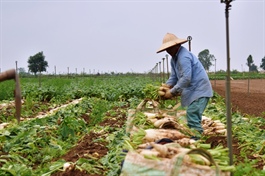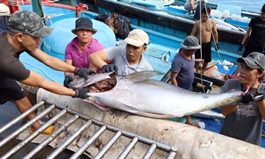Covid-19 could snap livestock production chain
Covid-19 could snap livestock production chain
The Ministry of Agriculture and Rural Development is worried that the ongoing Covid-19 outbreak might trigger imbalances in the livestock industry and disrupt its supply chains.
A pig farm of food producer Vissan. Photo courtesy of Vissan
|
Farmers have suffered heavy losses and the drop in market purchasing power threatens a supply shortage as well, it said at a Wednesday conference.
Nguyen Van Trong, deputy head of the ministry’s livestock department, said Covid-19 has already disrupted many mini supply chains, so the cost of input materials for production has increased, especially for livestock feed, thereby increasing production costs significantly.
Factories, slaughterhouses and processing facilities have suspended operations due to a shortage of labor – a Covid-19 impact. The supply chains of input materials as well as the distribution of output products have been disrupted due to the closure of wholesale markets, traditional markets, food stores and others.
Apart from production difficulties, travel restrictions have also created many challenges for the industry, the conference heard.
Low livestock prices are also hurting farmers. The retail price of white industrial chicken in the southeast and the Mekong Delta region is just VND6,000-10,000 ($0.26-0.44) per kilo, while its production cost is VND27,000-29,000 per kilo.
Several large enterprise have reported that they are only able to sell 5-10 percent of their flock of chicken and 70-80 percent of their pigs.
Senior agriculture department officials in Dong Nai, Nghe An, Phu Tho and other provinces also said the livestock industry in their localities were facing serious difficulties in production and consumption.
Many firms implementing the stay-at-work model are facing a serious shortage of workers because many fearful employees have quit.
Trong said authorities should support cooperatives, farms and livestock companies expand markets.
They should also look at ways of reopening traditional markets and wholesale markets and consider prioritizing Covid-19 vaccination for people working in the industry.




























